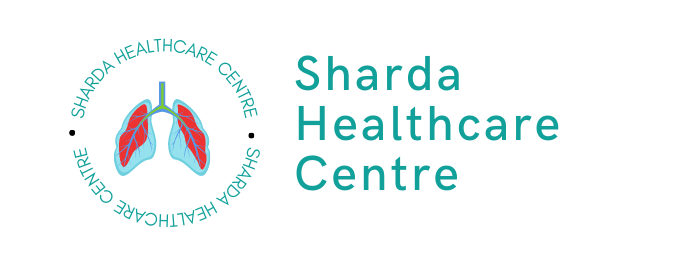Jaipur, a city known for its excellent medical infrastructure, offers comprehensive breathlessness treatment options. With a wide range of medical facilities and skilled healthcare professionals, Jaipur provides effective solutions for managing respiratory conditions. From thorough diagnostic evaluations to personalized treatment plans, patients can expect top-notch care. Whether it’s addressing underlying conditions such as asthma or chronic obstructive pulmonary disease (COPD), or providing immediate relief for acute breathlessness, Jaipur’s medical community leverages advanced technologies and therapies. The emphasis is on improving respiratory health and enhancing overall quality of life. With a patient-centric approach, Jaipur ensures that individuals receive the best possible care for their breathlessness concerns.

Breathlessness Treatment in Jaipur.

Causes of Breathlessness:
Asthma
Asthma is a chronic respiratory condition characterized by airway inflammation and narrowing, leading to symptoms such as wheezing, coughing, and breathlessness. It can be managed with medication and lifestyle modifications under medical supervision.
Pneumonia
Pneumonia is a serious lung infection that causes inflammation in the air sacs, leading to symptoms such as fever, cough, and difficulty breathing. Prompt medical attention and appropriate treatment are crucial for recovery.
Heart Disease
Heart disease refers to a range of conditions that affect the heart’s structure and function, including coronary artery disease, heart failure, and arrhythmias. Risk factors include high blood pressure, high cholesterol, smoking, and obesity. Prevention and management involve lifestyle changes, medications, and medical interventions.
Pulmonary Embolism
Pulmonary embolism occurs when a blood clot (usually from the legs) travels to the lungs, blocking blood flow. It can lead to chest pain, shortness of breath, and even be life-threatening. Immediate medical attention is necessary for diagnosis and treatment, which typically involves blood thinners and clot-dissolving medications.
Anxiety
Anxiety is a mental health disorder characterized by excessive worry, fear, and restlessness. It can manifest in physical symptoms like rapid heartbeat and sweating. Treatment options include therapy, medications, and lifestyle changes to manage symptoms and improve overall well-being.
Anemia
Anemia is a medical condition marked by a deficiency of healthy red blood cells or hemoglobin, leading to reduced oxygen-carrying capacity. Symptoms include fatigue, weakness, and shortness of breath. Treatment involves identifying and addressing the underlying cause, along with iron supplementation or blood transfusions if necessary.
Obesity
Obesity is a chronic condition characterized by excessive body weight due to an accumulation of fat. It increases the risk of various health issues, including heart disease, diabetes, and joint problems. Treatment involves lifestyle modifications, such as diet and exercise, along with medical interventions when necessary.
Lung condition
Lung conditions refer to a wide range of respiratory disorders affecting the lungs, such as asthma, chronic obstructive pulmonary disease (COPD), pneumonia, and lung cancer. These conditions can cause symptoms like coughing, wheezing, breathlessness, and chest pain, requiring proper diagnosis and treatment for optimal management.
Other causes may include:
Other causes may include various factors such as genetic predisposition, environmental exposures (e.g., pollution, allergens), occupational hazards, smoking, respiratory infections, autoimmune disorders, certain medications, and underlying medical conditions (e.g., heart disease, kidney disease). Identifying and addressing these causes are essential for appropriate treatment and management.
Signs of Breathlessness:
Signs of breathlessness include shortness of breath, rapid or shallow breathing, difficulty breathing deeply, chest tightness or discomfort, wheezing, coughing, and gasping for air. These symptoms can range from mild to severe and may be accompanied by anxiety, fatigue, and inability to perform physical activities.
Diagnosis
Diagnosis of respiratory conditions, including breathlessness, typically involves a combination of medical history evaluation, physical examination, and diagnostic tests.
During the medical history evaluation, the healthcare professional will ask detailed questions about the symptoms, their duration and intensity, any triggers or patterns, as well as any relevant personal or family medical history. This helps in understanding the context and potential underlying causes of the breathlessness.
The physical examination involves the healthcare provider assessing the patient’s respiratory function by listening to the lungs with a stethoscope, checking for abnormal breathing patterns, and evaluating other vital signs. They may also examine the heart, as some cardiac conditions can contribute to breathlessness.
To further aid in diagnosis, various diagnostic tests may be conducted. These can include pulmonary function tests (spirometry) to assess lung function and capacity, chest X-rays or CT scans to examine the structure of the lungs and identify any abnormalities, blood tests to check for markers of inflammation or underlying conditions, and electrocardiograms (ECGs) to evaluate heart function.
In some cases, more specialized tests such as bronchoscopy (visual examination of the airways) or arterial blood gas analysis (measuring oxygen and carbon dioxide levels in the blood) may be required for a more accurate diagnosis.
The combination of the medical history, physical examination, and diagnostic tests allows healthcare professionals to determine the cause or contributing factors of breathlessness. This information is crucial in developing an appropriate treatment plan tailored to the individual patient’s needs.
Breathlessness can be measured by:
Breathlessness can be measured by various methods, including self-reported scales such as the Borg Scale or Modified Medical Research Council Dyspnea Scale. Objective measurements include spirometry to assess lung function, pulse oximetry to measure blood oxygen levels, and exercise tolerance tests to evaluate the capacity for physical exertion.
Breathlessness Treatment in jaipur:
In Jaipur, breathlessness treatment is provided by a range of medical facilities and experienced healthcare professionals. With a focus on comprehensive care, the city offers diagnostic evaluations, personalized treatment plans, and advanced medical technologies. Whether managing conditions like asthma or providing relief for acute breathlessness, Jaipur ensures quality respiratory healthcare for patients.
When to seek a Doctor’s advice?
It is important to seek a doctor’s advice if you experience persistent or worsening breathlessness. Additionally, if breathlessness is accompanied by severe chest pain, rapid heartbeat, confusion, or bluish lips and fingertips, immediate medical attention should be sought. Prompt evaluation by a healthcare professional is essential for proper diagnosis and timely treatment.
Quick Contact
Address
70, 46, Patel Marg, opposite Rastogi Gas Agency, Mansarovar Sector 7, Agarwal Farm, Sector 9, Mansarovar, Jaipur, Rajasthan 302020
deveshkanoongo0701@gmail.com
Phone No.
9024605799, 9414774975
